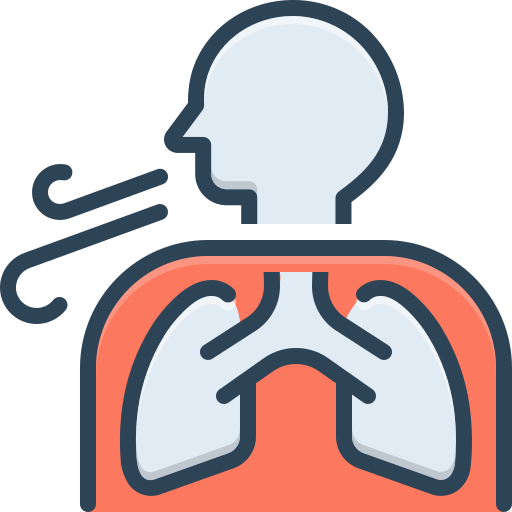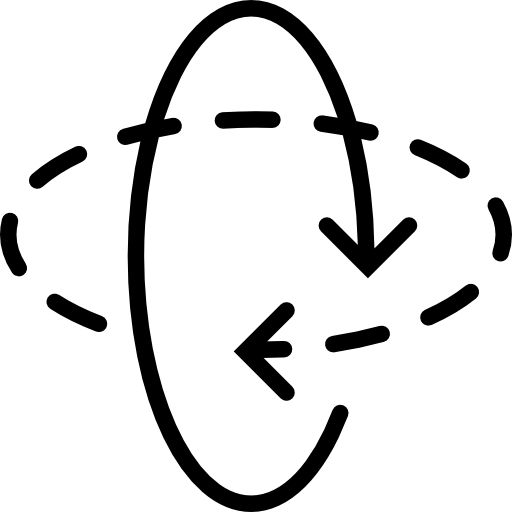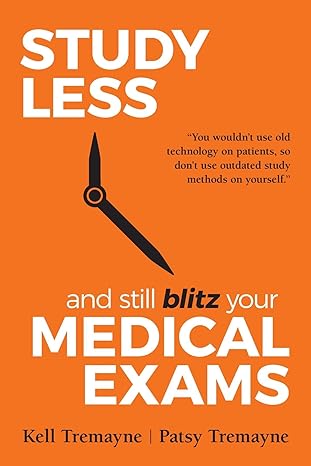- Home
- From Doctor Burnout to Resilient Recovery
- Sleep Hygiene
How to Relieve Stress Quickly: Pit Stop Strategies for Junior Doctors
Is being a doctor stressful emotionally? Without question. The emotional toll of medicine is like pushing a Formula 1 car to its limits—some heat is essential for peak performance, but without proper cooling systems, the engine overheats, parts warp, and breakdown is inevitable. In the high-speed world of healthcare, doctors are constantly racing against time, expectations, and emotional demands. Long hours, intense patient interactions, and the looming pressure of exams create a circuit of chronic stress. For those seeking how to relieve stress quickly, understanding this dynamic is the first step toward building resilience and avoiding burnout.
Acute stress, like a turbo boost, can sharpen focus and enhance performance in short bursts. But when stress becomes chronic, it’s like running hot laps without a pit stop—it erodes memory, clouds judgment, and destabilizes emotional regulation.
In our book Study Less and Still Blitz Your Medical Exams, we liken stress to a bucket slowly filling with water. Each drop—whether it’s unrealistic expectations, lack of control, poor sleep, or strained relationships—adds to the load. Without effective outlets (or “taps”), the bucket overflows, leading to burnout, anxiety, and depression.
The Neuroscience of Overheating
Just as an overheated engine loses efficiency, a stressed brain loses precision. Chronic stress impairs the hippocampus, the brain’s memory center, making it harder to retain and recall information—especially under pressure. It also activates the amygdala, heightening emotional reactivity and triggering cognitive distortions like catastrophizing (“I’ll never pass”) and emotional reasoning (“I feel anxious, so I must be failing”).
This sympathetic overdrive keeps the body in a constant state of fight-or-flight.....Heart rate increases, digestion slows, sleep becomes fragmented, and energy reserves are depleted.
In this state, even simple tasks feel overwhelming.
The result?
A doctor who’s physically present but mentally and emotionally running on fumes.
6 Pit Stop Strategies: How to Relieve Stress Quickly
Just as every F1 team has a pit crew ready to refuel, change tires, and cool the engine, doctors need their own recovery rituals. These strategies aren’t luxuries—they’re essential maintenance.
1. Breathwork: Your On-Demand Coolant |
2. Mindfulness: Reset the Dashboard |
3. Reframing Stress: From Threat to Challenge |
 |
 |
 |
4. Sleep: The Overnight Pit Crew |
5. Movement: Tire Rotation for the Brain |
6. Connection: Your Emotional Pit Crew |
 |
 |
 |
1. Breathwork: Your On-Demand Coolant
Just as coolant prevents a Formula 1 engine from overheating during a high-speed race, diaphragmatic breathing acts as a rapid-response cooling system for your nervous system. In the high-pressure world of medicine, where junior doctors are constantly racing through emotionally charged patient interactions, long shifts, and exam prep, stress builds up fast.
Knowing how to relieve stress quickly is not just helpful—it’s essential for performance and wellbeing.
In our book 'Study Less and Still Blitz Your Medical Exams', we write:
“In a hospital environment with limited spare capacity, breathwork is the easiest way for you to activate the parasympathetic nervous system. Breathwork intentionally slows down the breathing rate and lets your body know everything is OK.”
This technique is a cornerstone of stress management because it directly engages the parasympathetic nervous system, which counteracts the fight-or-flight response triggered by chronic stress. It’s discreet, portable, and effective—ideal for use between patients, before exams, or during emotionally charged moments.
Why It Works: The Science Behind the Breath
- Neurophysiology: Diaphragmatic breathing stimulates the vagus nerve, which activates the parasympathetic nervous system. This reduces sympathetic overdrive and promotes calm.
- Hormonal Regulation: Studies show that slow, controlled breathing reduces cortisol levels and increases heart rate variability—a marker of resilience.
- Cognitive Benefits: Breathwork improves focus, emotional regulation, and memory retrieval—critical for exam performance and clinical decision-making.
According to a meta-analysis published in Cell Reports Medicine (Balban et al., 2024), breathwork, significantly reduce anxiety and improve mood. Even brief interventions—just a few minutes a day—can have measurable effects.
Related pages on this area include:
- on how to relieve stress quickly.
- with strategic pit stops.
2. Mindfulness: Five Minutes to Reset Your Mental Dashboard
Mindfulness isn’t about sitting cross-legged for hours in silence. For junior doctors, time is precious—and stress is constant.
The good news?
Even five minutes of focused attention can significantly reduce rumination, improve emotional regulation, and enhance working memory. It’s one of the most accessible ways to learn how to relieve stress quickly, especially in high-pressure clinical environments.
In our book 'Study Less and Still Blitz Your Medical Exams', we note that:
“Mindfulness is having its moment with a wealth of new research that has explored an ancient practice. Numerous studies on mindfulness have shown that mindfulness reduces rumination and stress, increases working memory, focus, cognitive flexibility, and enhances relationships.”
Why It Works
Mindfulness does a few things.
- It activates the prefrontal cortex, the part of the brain responsible for decision-making, attention, and emotional regulation.
- It also calms the amygdala, which is responsible for the fight-or-flight response.
This dual effect helps you stay grounded and focused, even when the pressure mounts.
In clinical settings, where multitasking and emotional overload are common, mindfulness helps you:
- Stay present with patients and colleagues.
- Avoid cognitive traps like catastrophizing and emotional reasoning.
- Improve empathy and interpersonal communication.
- Reduce burnout and increase resilience.
3. Reframing Stress: From Threat to Challenge
In Formula 1, every lap is a test of precision, focus, and adaptability—not a threat to survival. Drivers don’t panic when they see a tight corner or a competitor gaining ground. They rely on training, trust their team, and lean into the challenge.
The same mindset shift can transform how junior doctors experience stress.
“Resilience is about helping see the stressors in your world and responding to those stressors with a minimal psychological or physical cost.”
This is the essence of reframing stress—not denying its presence, but changing how you interpret it. When you view stress as a threat, your body reacts with anxiety, muscle tension, and cognitive overload. But when you see it as a challenge, your physiology shifts: you become more focused, more motivated, and more capable.
Here are some powerful reframes you can use in the moment:
- “This is a challenge, not a threat.”
Challenges are meant to be met. Threats are meant to be avoided. This simple shift changes your orientation from fear to action. - “Stress means I care—it’s energy I can channel.”
Stress is a signal that something matters. Use that energy to focus, not freeze. - “I’ve trained for this lap—I know the track.”
You’ve studied, practiced, and prepared. Trust your preparation like a driver trusts their car.
These reframes aren’t just motivational—they’re physiological.
Research shows that how you perceive stress changes how your body responds to it. When you interpret stress as a challenge, your body releases DHEA (a neuroprotective hormone) alongside cortisol, which helps you stay sharp and recover faster.
Why It Works
According to the Transactional Model of Stress and Coping (Lazarus & Folkman, 1984), stress is not just about the event—it’s about how you appraise it. If you believe you have the resources to meet the demands, you experience challenge stress. If you believe the demands exceed your resources, you experience threat stress.
As we write in our book:
“Stress is not necessarily a bad thing. We need it to wake up in the morning, focus, learn, and remember new things… When in a prolonged state, these stress responses can become chronic stress and lead to burnout.”
Reframing helps you stay in the resistance phase of the stress response—where performance is high and sustainable—rather than slipping into the exhaustion phase, where burnout and breakdown occur.
Here are some common thinking traps that junior doctors can fall into.
4. Sleep: The Overnight Pit Crew for Junior Doctors
In Formula 1, no car finishes a race without a pit stop. Tires wear down, fuel runs low, and systems need recalibration. Sleep is your overnight pit crew - a full-system reset that consolidates memory, repairs tissue, and clears emotional debris. Skip it, and you're racing on bald tires with an overheated engine. Eventually, you’ll crash.
For junior doctors, sleep often feels like a luxury. But in reality, it’s a non-negotiable performance enhancer. In Study Less and Still Blitz Your Medical Exams, we emphasize:
“Sleep improves declarative and procedural memory, emotional regulation, and decision-making. Poor sleep mimics alcohol intoxication—after 24 hours awake, your cognitive performance drops to dangerous levels.”
Why Sleep Matters for Performance
Sleep isn’t just rest—it’s active recovery. During sleep, your brain:
- Consolidates memory: Short-term memories are sorted, strengthened, or discarded. This is essential for retaining study material and clinical knowledge.
- Regulates emotions: Sleep helps balance neurotransmitters and reduces emotional reactivity, making you more resilient under pressure.
- Supports decision-making: Sleep deprivation impairs the prefrontal cortex, leading to poor judgment, slower reaction times, and increased errors.
In medicine, where decisions can be life-or-death, sleep is not optional—it’s critical infrastructure.
Here are some considerations to improve sleep hygiene.
5. Movement: Tire Rotation for the Brain
In Formula 1, tire rotation is essential for maintaining grip, balance, and control. Without it, even the best car loses traction and risks spinning out. For junior doctors, movement is your mental tire rotation that:
- keeps your brain sharp,
- your mood stable, and
- your memory circuits firing cleanly.
Exercise isn’t just physical—it’s neurological.
It primes your brain for learning, improves emotional regulation, and helps you retain information more effectively. In Study Less and Still Blitz Your Medical Exams, we write:
“Imagine if you could take a pill that could make you lose weight, look younger, improve your sleep, and help you to reduce stress. What if this pill could also optimise your brain and, therefore, your chances of getting through your exam? … The magic pill is exercise.”
We cite research from Dr. John Ratey, author of Spark, who outlines how exercise improves learning on three levels:
- Balances neurotransmitters like dopamine and serotonin, which are critical for attention and focus.
- Stimulates neurogenesis—the birth of new neurons in the hippocampus, the brain’s memory center.
- Enhances synaptic plasticity, helping nerve cells bind together more effectively, which makes memory “stick.”
6. Connection: Your Emotional Pit Crew
No Formula 1 driver wins alone. Behind every champion is a crew chief, a team of engineers, strategists, and mechanics who monitor performance, make adjustments, and offer real-time support.
In medicine, your emotional pit crew - friends, mentors, colleagues, and family - plays the same role. They help you stay grounded, resilient, and emotionally regulated through the relentless pace of clinical work and exam preparation.
In Study Less and Still Blitz Your Medical Exams, we write:
“Resilience grows in community. You don’t have to go it alone. Connection is a powerful antidote to burnout.”
Why It Works: The Neuroscience of Support
We are wired for connection. When we feel supported:
- Our amygdala (the brain’s fear center) becomes less reactive.
- Our prefrontal cortex (responsible for decision-making and emotional regulation) functions more effectively.
- We experience lower levels of anxiety and depression, and higher levels of motivation and focus.
In high-stress environments like hospitals, where junior doctors often feel isolated, overworked, and emotionally drained, connection is not a luxury—it’s a lifeline.
Final Thoughts
In medicine, stress is part of the job—but burnout doesn’t have to be. Learning how to relieve stress quickly is essential for junior doctors navigating long shifts, emotional demands, and exam pressure. Just like a Formula 1 car needs pit stops to stay in the race, you need practical tools to reset and refuel.
From breathwork and mindfulness to movement, sleep, and connection, each strategy is a high-impact, low-effort way to protect your wellbeing and sharpen your performance. These aren’t indulgences—they’re essential maintenance for your brain and body.
You don’t have to do everything at once. Start small, stay consistent, and remember: resilience isn’t about being unbreakable—it’s about knowing when to pause, reset, and keep going. You’re not racing alone, and you don’t have to run on empty.





